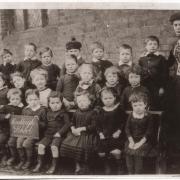From overcoming anxiety to healing after trauma, Rachael Perrett discovers how Essex’s animal therapy services support and empower people in the community
I run his soft ears through my fingers as he wriggles his nose into the nook of my elbow. Before I know it, my creeping anxiety is melting away. This is the power of animals.
I’m at Wellies On, a care farm in Abberton that works with people in the community to enable rehabilitation and build life skills. I’ve had a stressful week, but within minutes of sitting down for a cup of tea, Angus the terrier mix has chosen me as the person in need of comfort that morning – and it’s worked a charm.
If you were among the 3.2 million British households that adopted a pet during lockdown, you’ll know the positive impact they can have on mental health and wellbeing. In a survey by Barc London, 92 per cent of UK dog owners said their dogs helped to combat loneliness while four in five say their furry friends have helped foster new human relationships.
According to the Mental Health Foundation, animals can also help people with specific conditions, including ADHD and autism, in developing social skills, providing a sense of reassurance and assisting with sensory integration activities.
With many of us wanting to connect with nature post-pandemic and more health professionals exploring ideas of alternative treatments, animal therapy is becoming increasingly popular. It means pet owners aren’t the only ones who can benefit from spending time with animals; dedicated services and care centres across the country are helping people tap into these benefits, too.

One such service is Essex Therapy Dogs, a volunteer-led organisation that offers free dog visits across the county. Founded by Tina Jullings, an experienced dog assessor and trustee for dog therapy charities, the group visits various establishments where it feels community members could benefit from some doggy down time, including schools, hospitals and even airports.
‘We work with children and adults with varying needs,’ Tina explains. ‘Students who are anxious about exams; dementia patients to help with communication; anxious flyers waiting for flights or anxious patients visiting a dentist; and children with educational needs to help them engage with others around them.
‘There are many mental and physical benefits to a dog visiting,’ Tina continues. ‘Animal therapy can help people feel calm, provide comfort and soothe emotions. It reduces boredom and lowers anxiety levels. It can also help reduce loneliness and decrease feelings of depression.
‘Stroking a dog helps people to relax, stabilises blood pressure and reduces the risk of heart disease, heart attacks and strokes. Dogs can help slow down breathing for anyone suffering from anxiety, help with physical pain, release mood-boosting hormones and decrease the stress hormone cortisol.’
Australian labradoodle duo Waffle and Zilla and Westie Bobby are among Tina’s pack of therapy dogs. Together, they’ve been known to help children improve their reading skills and encourage young adults who don’t typically engage with people to interact with and talk to them.
But affable pooches like them aren’t the only animal that can provide support. The Peaceful Pony in North Benfleet is home to eight horses – as well as dogs, chickens, ferrets and goats – that primarily deliver therapy and support to neurodiverse children, adults and families, particularly children who have experienced trauma or are at risk of exclusion from school.

The centre was set up by certified mental health nurse Holly Lockwood-Waduge to offer Equine Assisted Therapy along with talking therapy. While different approaches are used based on individuals’ needs, all sessions are provided by qualified therapists, counsellors and mental health nurses.
‘We aim to help people understand their emotions through working with the horses,’ Holly tells me. ‘We’ll support a young person, whether they’re having difficulty regulating emotions or understanding who they are. First, we look at working with feeling safe in our spaces and building a relationship with one of the therapy animals, then look to facilitate that.’
While some people may assume sessions will involve simply riding or grooming a horse for a few minutes, animal therapy is significantly more engaging and dynamic than this. Sessions often start with a chat in the therapy shed before specialists allow the person to choose what they do that day and how they do it. That may mean spending time grooming a horse, but it could also be feeding the animals or even walking the goats. It’s all about taking an organic approach that puts the welfare of both children and animals first.
‘People don’t realise the impact that a horse will have on them just by being in the same space,’ Holly says. ‘If we came in with our own agenda, we’re going to interfere.
‘Quite often what happens is that people will start to feel safe and calm and will reflect their emotions onto the animals they’re working with. It becomes a safe space to communicate. They might observe different things about the horses’ emotions, too. Horses have the ability to help humans through their emotions, to comfort and to have fun. Each of the horses have different personalities and qualities for doing that.’
Making up Holly’s unique herd are eight horses and ponies of varying breeds, sizes, temperaments and backgrounds – many of which are rescues. From the 15h cob Petals to the charismatic Lila, who measures all of 28 inches, each horse has its own role to play, from providing cuddles to supporting non-verbal people.
Through continued sessions with horses like Petals and Lila, Holly has seen children improve immensely – and the results can be life-changing.
‘It’s a magical experience to see people grow and horses be able to provide comfort when no one else can – to have a horse put its head around a child or the child hug a horse when they may not be able to touch anything else or express their needs in any other way,’ Holly reflects.
‘A lot of the children we see are at a crisis point; they’re completely misunderstood and have to use aggression to communicate. But if you put them in a space where they can just be, learn about the world around them and have a trusting relationship with one of the animals and us, the daily changes we see are outstanding. People then leave us and there’s this sense that they’ve learned about themselves; it makes people more informed of their abilities and how amazing they are.’

The Wellies On team has also witnessed remarkable changes in the people it services, whom they refer to as co-farmers.
Founded by former teacher Ellie Goff and husband Warren 18 years ago, the care farm is home to an array of species, including sheep, horses and ponies, dogs, pigs, guinea pigs, chickens, ducks, tortoises and cats.
Besides working with a variety of people on-site, supported by a team of occupational therapists and mental health professionals, the team also offers its Flat-pack Farm service, taking a selection of animals where they’re needed, from hospital wards to end-of-life visits.
Typically, the team services children and young people who are struggling with their mental health, anxiety disorders or are on the autism spectrum. They also welcome visits from community groups, such as homeless centre Beacon House and a local women’s refuge.
Even when working in groups, animal therapy requires an individualised approach, as Ellie explains: ‘We, as facilitators, know which animals are going to be the best to work with whoever is here based on what their needs are. Often that may mean they turn up in the morning and what we had planned won’t work because that individual has faced new challenges.

‘Cookie the farm cat is a real favourite with our young people. So, if they need to go have a chat and cuddle with a cat on their lap, then they’ll go to the stable yard and sit on some bales of hay with her. That might include a bit of walk-and-talk therapy on the way to the stables about the challenges they’ve had that week and a way forward, or even just to be heard because they don’t feel that they have been. Or it might be that somebody has felt very alone during that week and has had an isolated existence, so a team activity would help that person feel valued.’
Working with such a diverse range of animals, Ellie knows they each have their own personalities and strengths when it comes to providing therapy. But in essence, the benefits of working with our four-legged and feathered friends can be summed up in one word: authentic.
‘Animals don’t judge,’ Ellie says. ‘It doesn’t matter whether you’ve done your hair or what you’re wearing, they meet you where you’re at. They’re also great ice-breakers. We always talk about the triangulated approach for any of our therapeutic work, and that work is ongoing in every interaction, whether you’re doing goat yoga or bottle feeding a baby goat. It means people are able to talk while “doing”, and the focus isn’t on them as an individual. In a counselling session, it’s like there’s a magnifying glass on you. Here, that’s not the case. We can focus on the animals and take the conversations from there.
‘They also bring laughter,’ Ellie adds. ‘Like when one of them does something funny like jumps over a straw bale as they’re escaping out of the pen. You can’t pre-programme an animal to do something, they just do it. When people respond to that, sometimes you find them catching their breath and thinking “Oh gosh, I just laughed in front of people”. That’s the magic of working with animals: they don’t think about yesterday or tomorrow, they think about what’s going on in the moment.’

One person who can testify to this is Adam Pallant (40). ‘Originally I came here when I was homeless,’ Adam tells me. ‘I came so often that I’m now a volunteer so I can help others have fun with the animals.’
During his time at the farm, Adam has done everything from handling various species to mending fences. But a key moment has been watching baby goats being born and growing from kids into adults. This circle of life allowed him to reflect on his own journey: ‘When the baby goats were born, they were so tiny. As time elapsed, they grew, and that’s how I saw my life in them: time had elapsed for them and me.
‘Seeing the animals helps you keep a part of yourself, a part of your humanity,’ Adam adds. ‘Even just a simple body gesture from the horses will tell you how they feel, how you feel; they just amplify everything – and that goes both ways. We need them and they need us.
‘[Coming to Wellies On has] helped strengthen everything and keep me on a good path. In my own walk of life, I’ve come from a broken home, been homeless, to now knowing I’m somewhere safe.’
While the animals played a huge part, Adam’s new-found self-confidence is also down to the support he’s received from the Wellies On team. That extra human connection from patient, dedicated and experienced specialists like Tina, Holly and Ellie is perhaps one of the reasons why animal therapy can be so effective.
For fellow Wellies On co-farmer (and goat fan) Ruthie (51), this combination of animal therapy and human guidance made all the difference: ‘I can’t tell you how much this place has done and continues to do for me,’ Ruthie tells me. ‘When I first started coming here, I was non-verbal. Ellie, Warren and Drew (Wellbeing Support Facilitator) learned about me first before they helped me find a path that I would enjoy.
‘I never wanted to go anywhere until I came around these people and these animals, because they go hand in hand. They have inspired me to become more confident around the farm. Never did I feel I would be among sheep or goats or guinea pigs like this.
‘From the co-farmer’s perspective, their approach means everything. They found a person where I genuinely didn’t think there was a person left to find.’



























